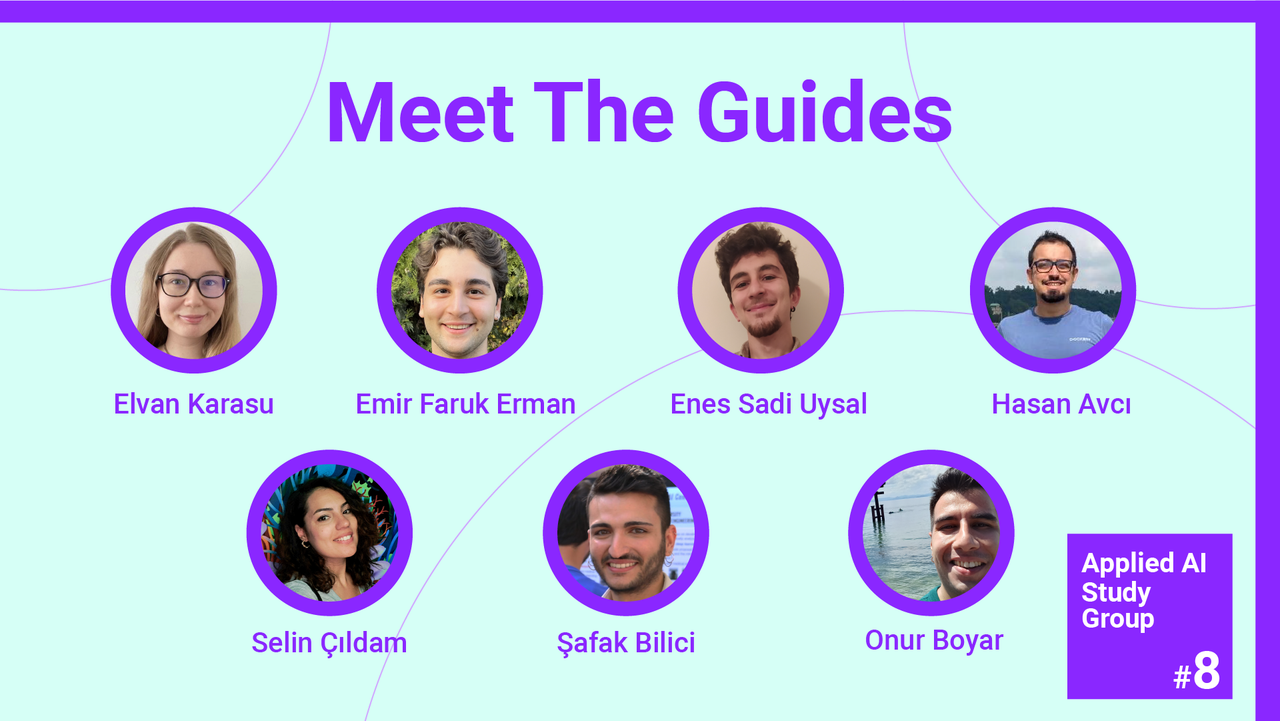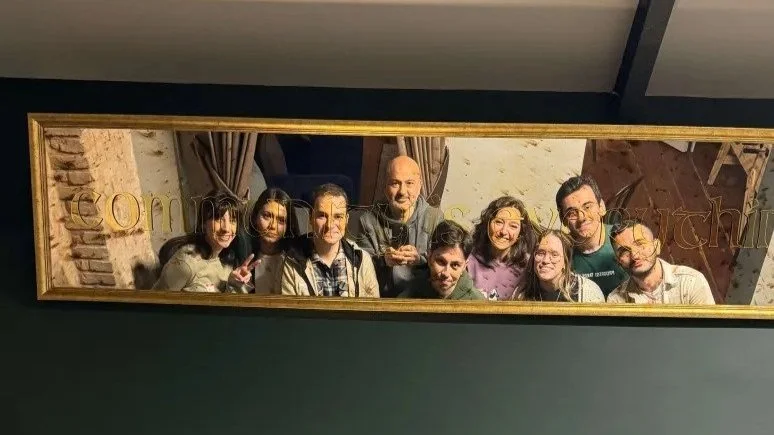APPLIED AI #8 REPORT
The 8th Applied AI Study Group has come to an end, and what an amazing journey it has been! The Saturday sessions focused on computer vision, natural language processing, and machine learning in the business world. This batch, we gathered to discuss the solutions for the four homework notebooks on Wednesday evenings. Our program, which ran online from March 23 to May 4, was guided by our seven wonderful instructors!
Out of 142 applicants, we kicked off the program with 42 participants, and 33 dedicated members earned their place as successful graduates.
Our fantastic instructors brought a wealth of knowledge to the table. Hasan Avcı shared his expertise in ML in Business and MLOps, covering topics like Docker, model deployment, and monitoring. Şafak Bilici enlightened us on the latest trends in Natural Language Processing, including large language models, and provided hands-on experience in designing search engines. Enes Sadi Uysal walked us through the latest popular models in Computer Vision, such as Diffusion Models and multi-modal architectures. Finally, Onur Boyar wrapped up the course by showcasing the implementation of LLMs in the realm of AI for Science.
In this batch, we introduced lab sessions where we gave assignment notebooks and discussed participants' solutions in detail. Our talented graduates from previous batches led these sessions: Selin Çıldam, Elvan Karasu, and Emir Faruk Erman.
Take a look at the syllabus!
SYLLABUS OVERVIEW:
During the first two weeks, we explored how Machine Learning in Business works with the guidance of Hasan Avcı. The section began with an introduction to the role of a Machine Learning engineer, delving into responsibilities, skills, and essential frameworks. The session progressed to converting the prototype into a functional ML product by constructing an API and integrating MLOps elements for scalability, reliability, and maintainability.
Complementing this theoretical knowledge, Selin Çıldam led two lab sessions on ML in Business. This session reinforced the concepts learned through interactive exercises and real-world applications, providing deeper insights into effectively implementing machine learning solutions in business contexts.
During the sessions on Natural Language Processing, led by Şafak Bilici, we focused on recent research and practical developments in NLP from 2018 to 2023. We began with a recap of NLP and the vanilla Transformer model, then shifted to pre-trained large language models. Topics included fine-tuning, distillation, quantization, ethical considerations, dialog models, efficient transformers, and LLMs for search.
And it wasn’t all work and no play! We organized a career event featuring a CV Roasting session with Utku Yavuz, Şafak Bilici, and Hasan Avcı, and an onsite meetup where we finally got to know each other beyond the screens!
In the fifth week, Elvan Karasu led an NLP Lab Session, involving practical activities and interactive exercises to deepen participants' understanding of the concepts.
During the week on Advanced Computer Vision, led by Enes Sadi Uysal, we delved into topics such as diffusion models, visual transformers, and multimodal approaches. We began with the basics of computer vision, then explored transformers on image data, diffusion models, and multimodal approaches such as CLIP.
Emir Faruk Erman led a Computer Vision Lab Session, providing participants practical, hands-on experience. This lab allowed attendees to apply the theoretical knowledge gained, enhancing their understanding through interactive exercises and real-world applications.
In the final week with Onur Boyar, we discussed applying the models learned throughout the course to fields like bioinformatics and drug design. The course concluded with an open discussion on practical applications and a graduation ceremony!
HOW DID OUR PARTICIPANTS DO?
COMMUNITY FEEDBACK
Bike Sönmez, Istanbul Technical University
“Thanks to the practical and up-to-date curriculum, I gained insights into what to expect in the industry as someone who wants to work in this field after graduation. The interactive environment in the weekly sessions provided fun and educational experiences with other participants who embarked on this journey with me.”
Efekan Kavalcı, Boğaziçi University
“After completing this program, I feel more prepared to work as an ML researcher or engineer. Being a part of the inzva community and interacting with all the open-minded individuals there was an irreplaceable experience.”
Stay tuned for the next batch!
All participants have to abide by our CODE OF CONDUCT and LETTER OF CONSENT.
A BEV Foundation project inzva is a non-profit hacker community organizing study and project groups as well as camps in the fields of AI and Algorithm; and gathering CS students, academics, and professionals in Turkey.


















